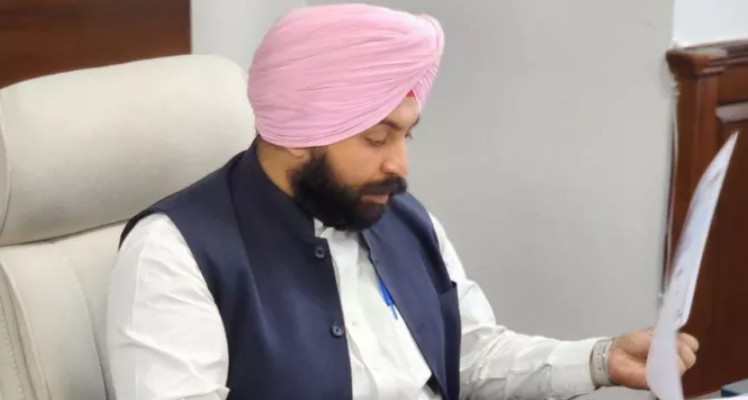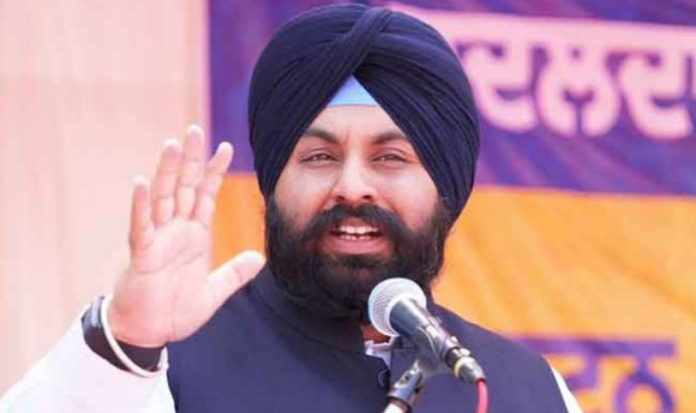In an ambitious and heartening move to elevate the quality of school education in Punjab, a total of 100 senior government officers, including 41 Indian Administrative Service (IAS) officers and 48 Indian Police Service (IPS) officers, have applied to adopt government schools across the state under a visionary mentorship initiative launched by the Punjab government. This proactive step comes as part of a larger policy push by the administration to transform the state’s education system and foster a closer connection between governance and grassroots educational reform.
The initiative is deeply rooted in the belief that government schools, long perceived as lagging in both infrastructure and academic performance, can be revitalized through strong leadership and personal involvement from top officers. These mentors are expected not only to guide and inspire students but also to act as a bridge between local educational challenges and state-level policy solutions. By adopting one school each, the officers commit themselves to monitoring the school’s progress, providing strategic oversight, and supporting the staff in every way possible to raise educational standards.
Launched under the umbrella of the ‘Schools of Eminence’ policy introduced by the Punjab government, this program envisions government schools not merely as centers of rote learning but as institutions that foster holistic development. The policy aims to ensure that students in government schools receive the same level of opportunity and quality of education as their counterparts in private institutions. With officers directly invested in the day-to-day development of these schools, the gap between policymaking and implementation on the ground is expected to shrink significantly.
Each officer brings with them a wealth of experience, administrative insight, and an influential network of contacts that can be leveraged to benefit the school they are mentoring. Some officers have already initiated the process of understanding their respective schools’ needs—be it infrastructure repairs, learning material, teacher training, or extracurricular development. These efforts signal a shift in the traditional approach to education management, showing that change is most effective when driven by people in power who are personally invested in the outcome.
The move also attempts to reimagine the social role of civil servants and police officers, placing them not just as enforcers or administrators but as community builders. Officers taking part in the program have expressed a sense of pride and responsibility in being part of something that directly shapes the lives and futures of young students. Many have stated that their motivation lies in giving back to the community, and in many cases, these officers have chosen to adopt schools in the very areas they grew up in, making their involvement even more meaningful.

While 100 officers have already applied, the response is expected to grow further as awareness spreads. The state government has created a structured framework for officers to engage with the schools they mentor. Regular visits, meetings with school staff and students, and quarterly progress reports form part of the roadmap to ensure consistency and accountability. Moreover, officers will be encouraged to facilitate collaboration between the school and private donors, NGOs, and community leaders, creating a more inclusive ecosystem for education reform.
For instance, one senior IAS officer, who has chosen a school in rural Amritsar, has begun mobilizing support to upgrade the school’s digital infrastructure. Plans are underway to set up a smart classroom and initiate digital literacy programs for both students and teachers. Meanwhile, an IPS officer from Ludhiana has committed to arranging self-defense and safety awareness workshops for students, particularly girls, adding another layer to the school’s value system and practical education.
The mentorship program also aligns with the state’s goal of improving enrollment and retention rates in government schools. A school under the mentorship of a high-ranking officer sends a strong message to parents and communities about the school’s value and the administration’s commitment. It encourages parents who might otherwise opt for costly private schooling to reconsider the benefits of public education, especially when they see tangible improvements in infrastructure, teaching quality, and student performance.
While challenges remain—such as overcoming infrastructural deficits, dealing with outdated syllabi, and resolving staffing shortages—the collective involvement of senior officials could serve as a catalyst for rapid and sustainable change. Moreover, it ensures that the concerns and suggestions from teachers and students at the grassroots level are heard at the highest levels of governance, thereby improving the responsiveness of educational policies.
Critics may argue that this move could be symbolic or short-lived, but the government has taken steps to institutionalize the initiative. Officers are not expected to personally fund changes but to serve as facilitators who can tap into government resources, CSR funding, and voluntary contributions to bring about development. The idea is not to put the burden of school improvement on individual officers but to leverage their leadership to mobilize systemic support.
Chief Minister Bhagwant Mann has expressed strong support for the program, stating that education reform is among the top priorities of his administration. He emphasized that by involving officers who are already role models for many, the state sends a message about the importance of education as a collective responsibility.
Furthermore, the program includes a feedback mechanism wherein students and staff can share their experiences and suggestions with their mentors. Officers will also receive orientation and guidance to ensure their contributions are in alignment with the educational needs and long-term goals of the state. This ensures that the program remains focused, coordinated, and free of redundancy.
Over time, if the initiative shows results—improved test scores, higher enrollment, better attendance, or stronger teacher morale—it could serve as a model for other states looking to reform their public education systems. It is not often that bureaucracy, education, and community engagement intersect in such a structured and visionary way, and the Punjab government seems keen on setting a precedent.
In essence, the mentorship program where 100 officers have applied to adopt schools is more than an administrative gesture—it is a statement of intent. It marks a decisive step towards making education a collective mission where leaders step out of their offices to work side-by-side with educators, students, and parents. With sustained commitment, regular evaluations, and the genuine will to empower schools at the grassroots level, this initiative holds the promise of reshaping the educational landscape of Punjab for generations to come.


